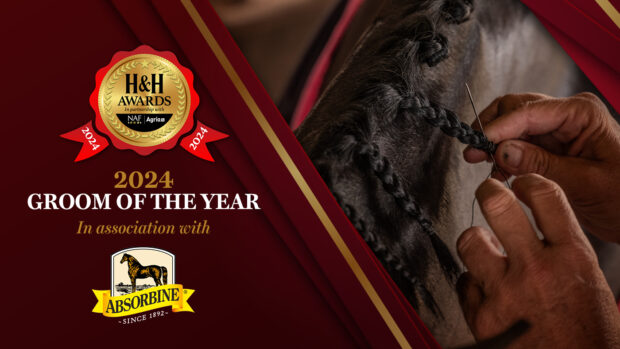Correct nutrition plays a major role in the performance of a successful event horse, as a horse cannot develop muscle or perform to its best if its diet is inadequate.
An event horse’s energy can be obtained from fibre, starch and oil, and as the horse’s fitness increases and the demands placed on its body changes, the levels of each type of feedstuff required will change.
In the early stages of any fittening program the majority of energy should be derived from fibre sources including good quality hay or haylage. As the horse becomes fitter and its workload increases, more energy is required to maintain body condition and performance. Therefore, energy sources such as starch and oil become increasingly important.
Too much starch from cereals in the diet can cause problems, increasing the risk of digestive disturbances such as colic. Feeding oil, which contains nearly three-times more energy than starches, enables lower levels of starch to be fed and is ideal for animals with poor appetites.
The benefits of high oil feeds include improved levels of endurance and a reduction in the risk of some metabolic problems, such as azoturia. The energy provided by oil is digested and released slowly into the body, making it less likely to exacerbate excitable behaviour.
Feeding a compound feeds that has been specifically formulated to be high in both oil and fibre, but low in starch, will enable you to meet your horses energy requirements while keeping concentrate feed and starch intake down.
Top-dressing feeds with soya oil will also help to increase the horse’s calorific intake. However, extremely high levels of oil (more than 15% of the total diet) may adversely affect performance.
Protein for performance
Work and training are essential to correctly develop the muscles, but the protein content of the diet is also important. The horse continually uses protein, which are made up of chains of amino acids, to build and repair tissues including muscle. Horses can synthesise about half of these amino acids within their body, while the other half must be supplied in the diet.
The quality of protein in the diet is extremely important. A lower protein feed can perform better than one with a higher protein content, if the protein is of high quality. A horse that lacks good muscle development or does not maintain condition well may not be receiving sufficient high quality protein in its diet.
It is not advisable to feed excessive amounts of protein because this can place an extra burden on the horse’s metabolism as any excess must be broken down and excreted as waste.
It is also essential that the horse receives adequate levels of vitamin and minerals and electrolytes should be supplied once the horse is in hard work.
|
What to feed: the eventer
Dodson & Horrell’s extensive range of compound feeds includes a number of low starch feeds, which contain optimal levels of good quality protein, making them ideal for event horses. These include Pasture Nuts (for light work), Staypower Cubes and Muesli (for medium work), and ERS Pellets (for hard work). For expert advice on formulating a balanced diet for an event horse, contact Dodson & Horrell’s feed helpline (tel: 0870 442 3322) or visit: www.dodsonandhorrell.com |



